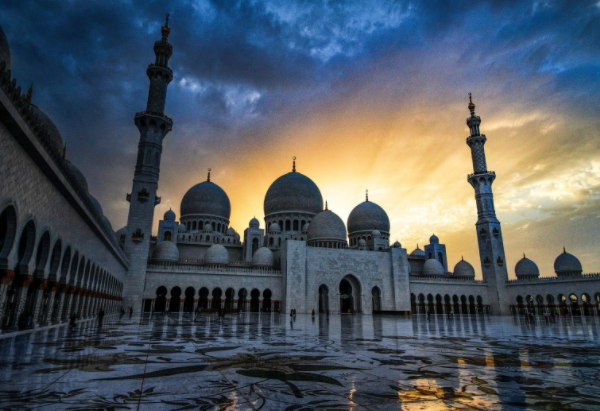
Choosing a name for a child is a significant decision for parents, as it often reflects cultural heritage, spiritual beliefs, and personal aspirations. In Islamic tradition, names carry a profound weight, often linked to qualities, virtues, and deep spiritual meanings. Unique Islamic names are not only beautiful in sound but also meaningful, reflecting the values of the religion and the hopes that parents hold for their children.
The Importance of Names in Islam
In Islam, names are seen as an important part of a person's identity. A well-chosen name can be a source of pride and connection to one’s roots, faith, and history. Many Islamic names are derived from Arabic, and they often convey meanings that reflect virtues such as strength, wisdom, beauty, or piety. Some are linked to significant figures in Islamic history, while others come from nature or qualities admired in the faith.
Popular and Unique Islamic Names
While there are many well-known Islamic names, like Fatima and Muhammad, unique Islamic names are becoming increasingly popular among parents who want to give their child a name that stands out while staying rooted in tradition.
For example, names like Zahra (meaning “flower” or “blossom”) and Ayman (meaning “blessed” or “righteous”) are distinct, offering both beauty in meaning and rarity in use. Names like Leen, which means “tender” or “soft,” or Rafiq, meaning “friend,” are also becoming more sought after due to their simplicity and elegance.
Islamic Names For Girls
When choosing Islamic names for girls, parents often look for names that are graceful yet unique, reflecting both femininity and strength. Some unique Islamic names for girls include:
1. Aaliyah – Meaning “exalted” or “noble,” this name signifies high status and is perfect for parents who want their daughter to embody leadership and dignity.
2. Sahar – Meaning “dawn” or “early morning,” this name is a symbol of new beginnings and hope, making it a perfect choice for a fresh, unique name.
3. Yasmin – Derived from the flower jasmine, this name carries a natural, floral grace, ideal for parents who want to reflect beauty and purity in their daughter’s name.
4. Inaya – Meaning “care” or “concern,” this name expresses compassion and thoughtfulness, qualities that are admired in many cultures, including Islamic tradition.
5. Farah – Meaning “joy” or “happiness,” this name captures the essence of a bright and positive personality, a common aspiration for parents when naming their children.
These names not only sound elegant but also hold deep meanings that align with Islamic values and principles, offering a perfect balance between tradition and individuality.
Choosing the Right Name
Choosing a unique Islamic name involves more than just selecting something that sounds beautiful. Parents often research the meanings behind names, considering how they align with Islamic teachings and the qualities they hope their child will grow into. Some parents also choose names based on Quranic references or historical figures, which can add an extra layer of significance to the name.
In today’s world, many parents are seeking names that are easy to pronounce in both Arabic and other languages, reflecting the global nature of modern Muslim families. Unique names like Nura (meaning “light”) or Zayn (meaning “beauty” or “grace”) offer simplicity while maintaining their cultural richness.
Conclusion
Unique Islamic names offer a timeless blend of beauty, meaning, and cultural significance. Whether drawing from historical roots or inspired by nature, Islamic names carry profound meanings that reflect Islamic values and aspirations. As more parents look for names that stand out while still being tied to their faith, these unique names offer a perfect way to honor both tradition and individuality.
Choosing a name is one of the first important decisions parents make for their children, and by choosing a name that is meaningful and unique, they help shape their child’s identity in a beautiful and significant way.






